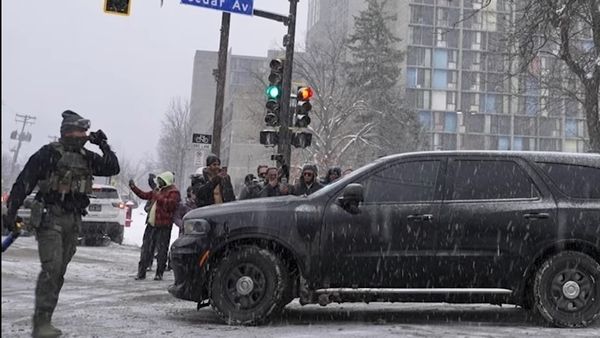During the 1990s in Singapore, LGBT activism was an underground activity. The community had to hold its monthly meetings in secret for fear of members being outed and the government clamping down on them. This was an era when the police raided bars and clubs which hosted LGBT gatherings and the officers posed as gay men cruising for sex in order to entrap and later charge gay men in court for obscene behavior.
The fear of a crackdown was so great that Eileena Lee, an activist who started RedQuEEN! in 1998, told The News Lens, "Back then, in order to avoid police raids, the monthly queer women nights out would be held at different venues every month."
The political leadership was intractable and refused to grant even basic rights to the community. In 2000, People Like Us (PLU), a gay rights organization, made an application to organize a public forum and was refused on the grounds that Singapore society was too “conservative.”
When questioned by a student at a public discussion about the refusal, Mr. Lim Swee Say, who was a government minister at the time, said, “I do not believe that a single group of people in Singapore has the right to publicize its lifestyle and impose it on others. I am an avid golfer, but I do not hold a forum on golfing to say how much I love golf and convince others it is good."
In the early 2000s, the public attitude toward the LGBT community was largely hostile. A 2005 poll by the Nanyang Technological University found that 69 percent of Singaporeans viewed homosexuality negatively.

Singapore's Progress in Freedom of Speech and Expression
However, changes were slowly introduced with greater freedoms. In 2000, following two illegal public speeches by Dr. Chee Soon Juan, Secretary-General of the Singapore Democratic Party, the government established Speaker’s Corner at Hong Lim Park, designating it as the only place for public speeches.
Further liberalization happened in 2008 and Singaporeans were allowed to hold public rallies and protests at the Speaker’s Corner (they were only allowed to make speeches previously). The opportunity to gather and raise the concerns of the community in a visual and public way marked a milestone in LGBT activism.
Eschewing its more “aggressive” and “confrontational” counterparts in the West and the rest of Asia where demands for equal rights and pride events are common, activists in Singapore organize an annual rally known as “Pink Dot” with the slogan “freedom to love.” From an attendance of approximately 2,500 in its first year, through savvy marketing and careful branding, the turnout has swelled to 20,000 people in 2017.
The cumulative efforts of the LGBT community to organize themselves, a shift in societal norms in the rest of the world, and the Singaporean government’s changing attitudes toward the community provided the conditions for more organized activities. The widespread use of the internet and social media led to the creation of even more initiatives. Several campuses and grassroots groups were formed, where topics such as discrimination and inadequate protection are openly discussed. This would not have been possible 20 years ago, when simply gathering at bars was controversial for the LGBT community.
Minority Groups Within the LGBT Community
In spite of such positive developments, not everyone in the community benefits from it equally.
Transgender activist Menon, who requested anonymity for fear of losing his job, told The News Lens that many in his community still face discrimination from gay cisgender individuals who are unable to understand the concerns of transgender people. He said the transgender community often has to deal with fears of job discrimination and backlash on being too vocal on policy issues.
“At least among the activist community, this has started to change a little over the years… There is a more conscious effort to include trans people in conversations now," Menon said.

Jean Chong, an activist who has helped establish queer women’s group Sayoni, said her organization wants “to address the problem of patriarchy in the LGBT community.” According to her, LBTQ women are not in leadership positions in the community and their concerns do not receive as much attention as cisgender gay men.
“I think LGBT groups should see themselves as human rights organizations and not put themselves into a box of just LGBT rights. Laws and policies remain the same because of our political structure and in order to move forward, we need to move beyond the usual template to challenge the existing lack of rights in our political and government institutions,” Chong said.
Section 377A: The Battle Between Pro-Family and Pro-LGBT Groups
The conservative Christian majority in Singapore, who have tried to counter the growing LGBT movement with their own campaigns over the years, also find the increasing LGBT acceptance threatening.
According to Leow Yangfa, executive director of gay counseling group Oogachaga, the government has framed the debate surrounding LGBT rights as one where battle lines are drawn between “pro-family” and “pro-LGBT” groups. The fear of “social disharmony” is used as a reason to uphold the status quo. He does not see the government making any efforts to bridge those ‘fault-lines’ and reconcile opposite views.

“Perhaps what the LGBT community needs to do now, in addition to advocating for change, is to advocate for engagement — with the conservative and religious segments of Singapore that are resistant to change,” said Leow.
Eileena Lee also believes in the importance of building bridges instead of animosity. Many activists have challenged the constitutionality of Section 377A of the Penal Code, a British colonial-era law that criminalizes sex between men, but failed. Although Section 377A has been repealed in other former British colonies such as India, it is still legally restricting the LGBT community in Singapore.
“Many activists may not agree with me but I am of the opinion that taking an adversarial approach will not work. The challenge now is to push for the repeal of Section 377A of the penal code without appearing like we are anti-religious as the anti repeal camp would like to portray us,” Lee said.
READ NEXT: 2019 Taiwan Pride: Taipei's LGBT Hotspots
TNL Editor: Daphne K. Lee (@thenewslensintl)
If you enjoyed this article and want to receive more story updates in your news feed, please be sure to like our Facebook page below.







